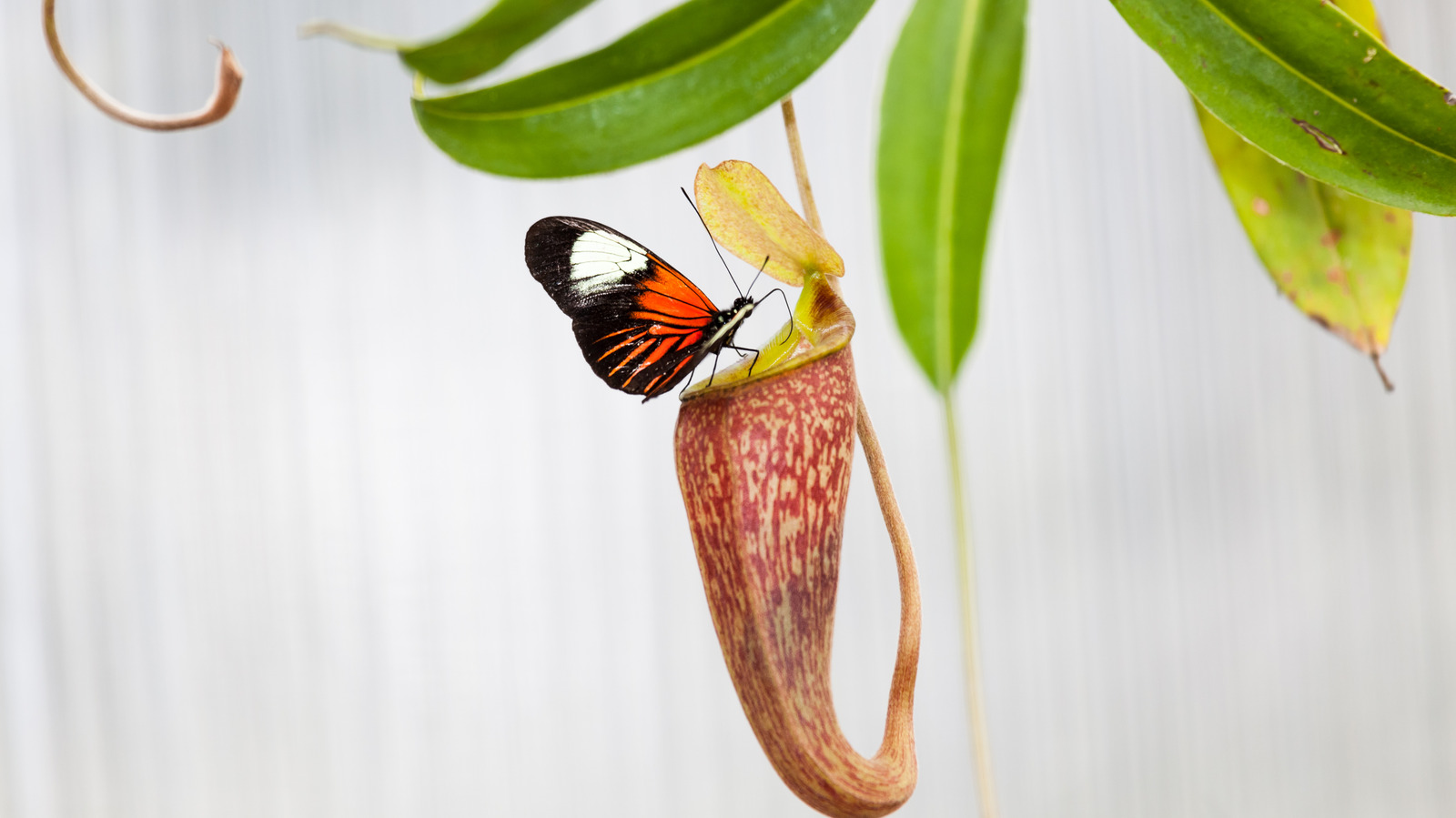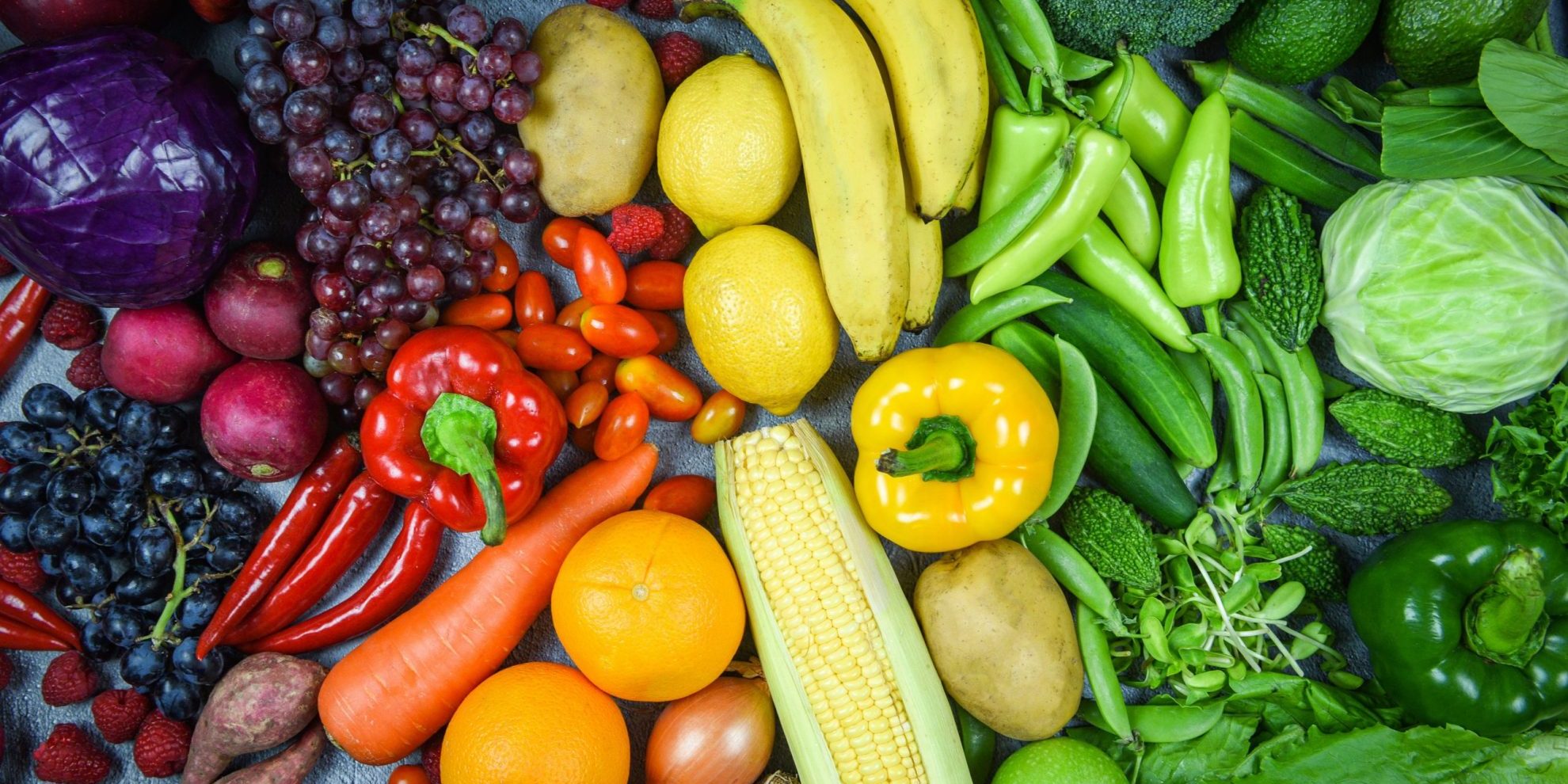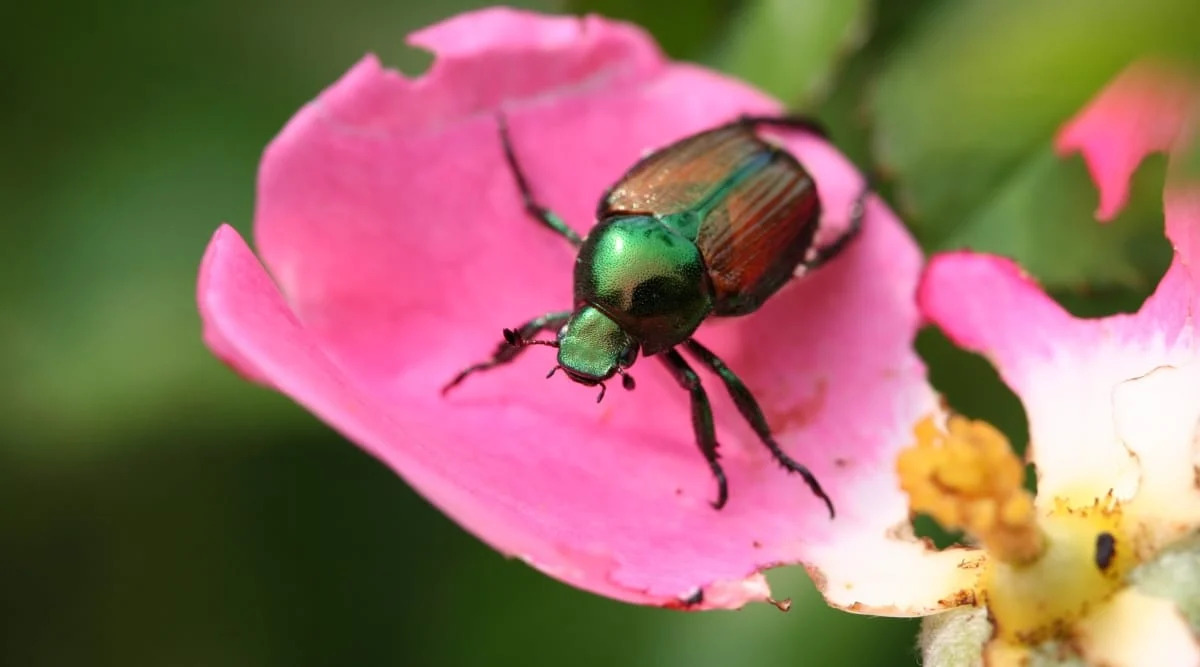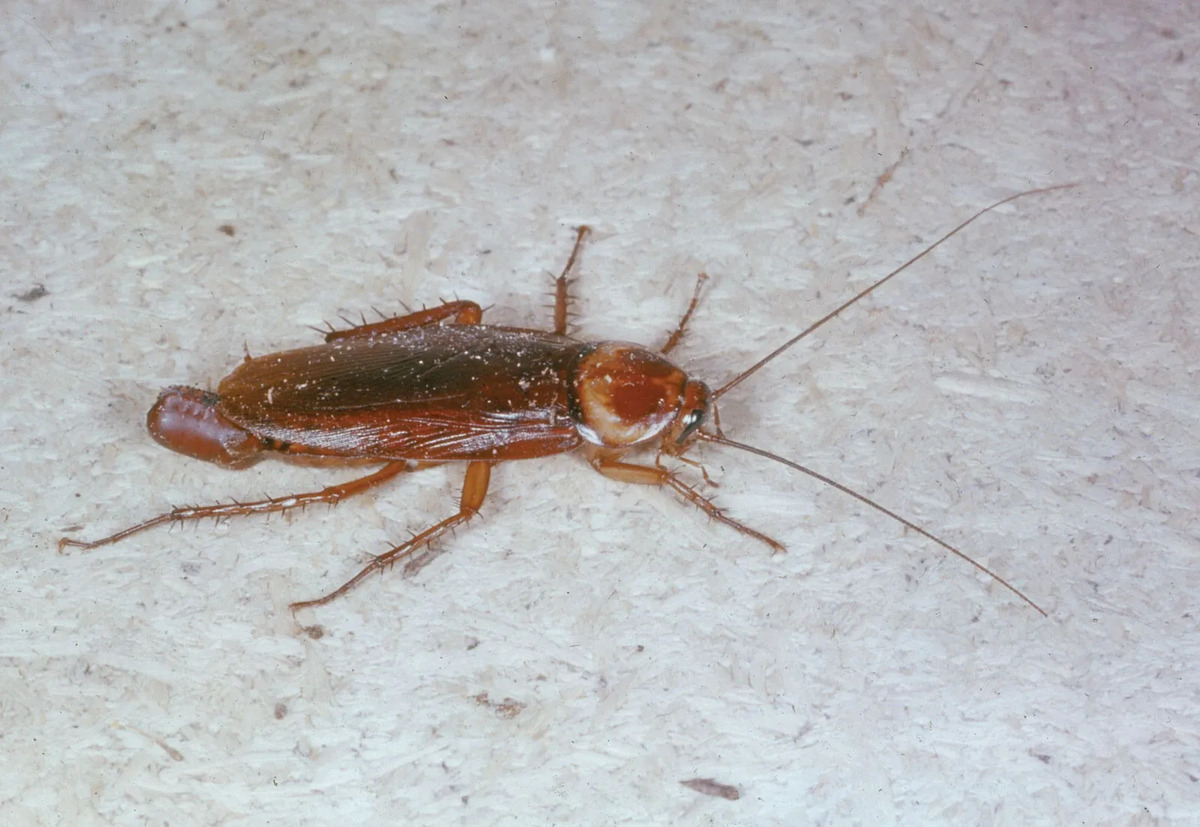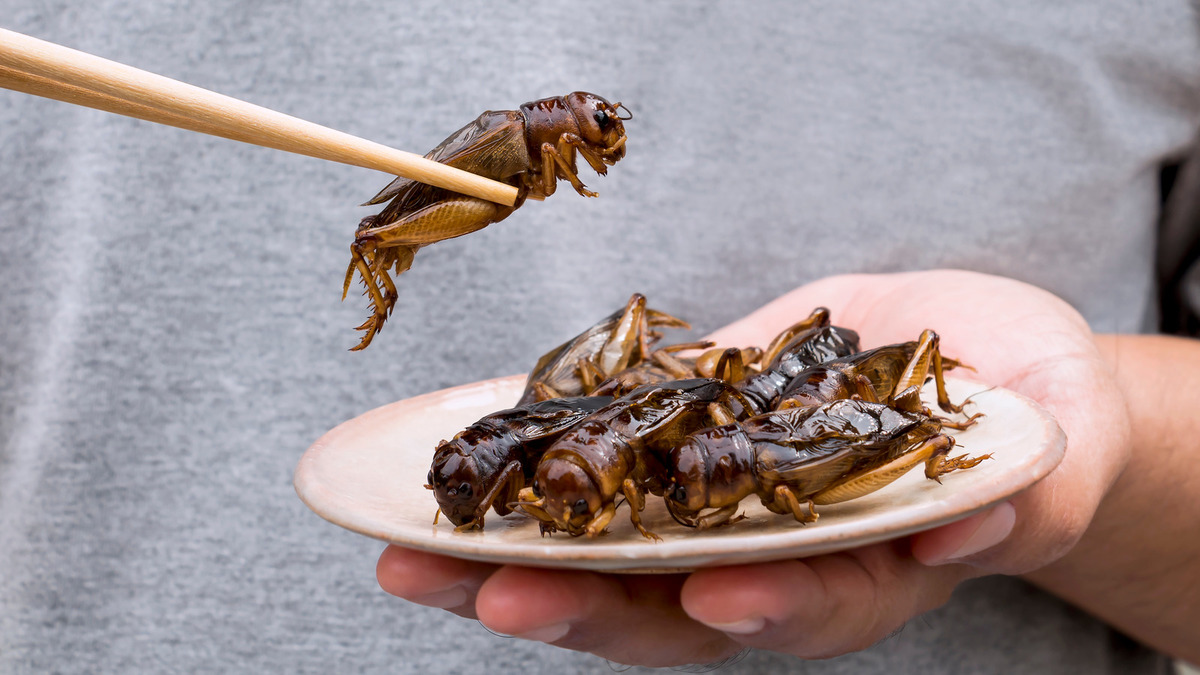Home>Gardening News and Trends>Latest News>Why We Should Eat Insects
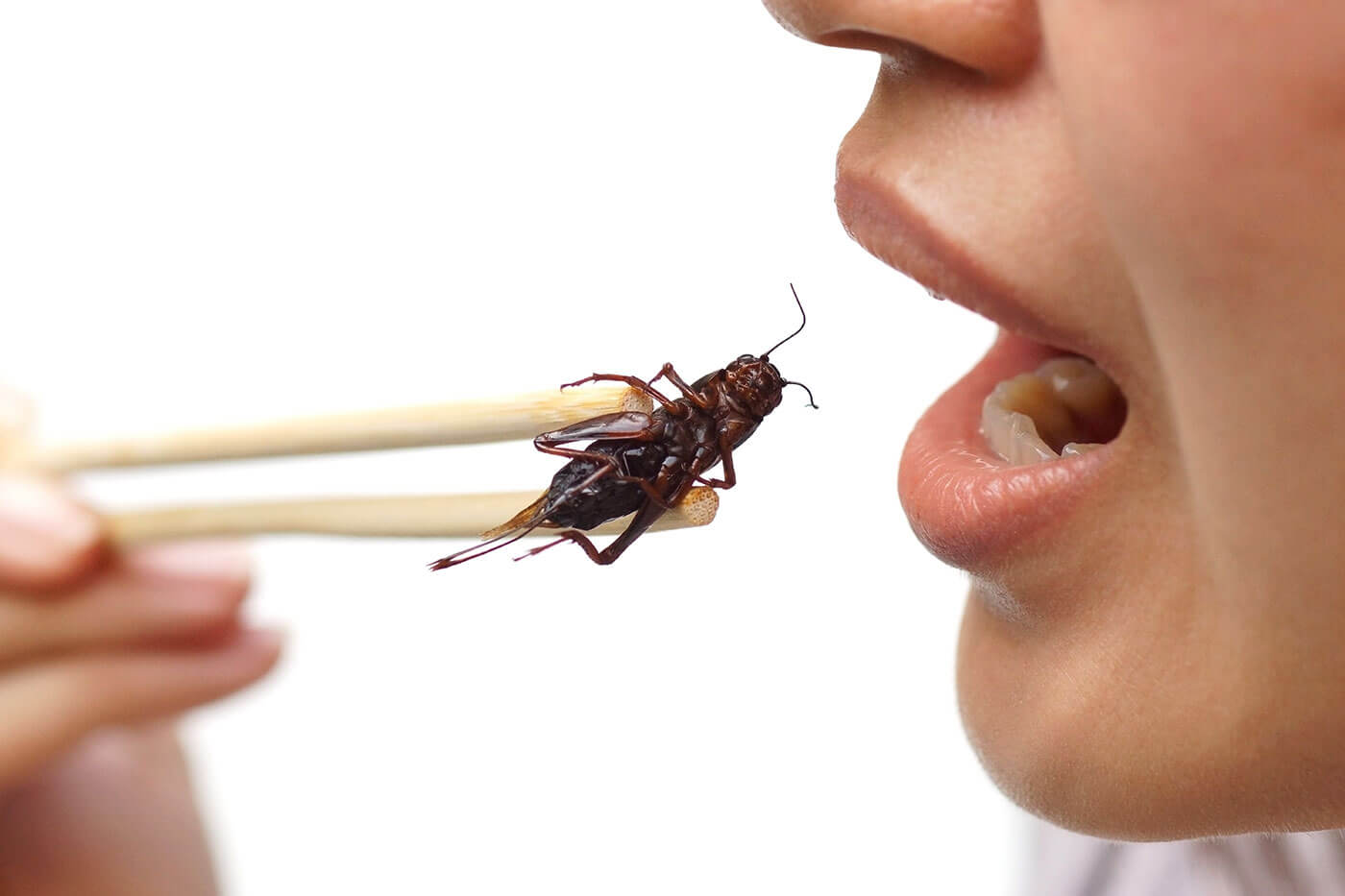

Latest News
Why We Should Eat Insects
Modified: January 22, 2024
Discover the latest news on why we should eat insects and explore the benefits of incorporating these sustainable protein sources into our diets.
(Many of the links in this article redirect to a specific reviewed product. Your purchase of these products through affiliate links helps to generate commission for Chicagolandgardening.com, at no extra cost. Learn more)
Table of Contents
Introduction
As the world’s population continues to grow at an unprecedented rate and concerns over food sustainability rise, an unconventional solution has emerged – the consumption of insects. While eating insects may be met with skepticism by many, it is gaining traction as a viable and eco-friendly alternative to conventional livestock agriculture.
For centuries, insects have been a part of human diets in many cultures around the world. However, in Western societies, the idea of incorporating insects into our meals may seem strange or even repulsive. Nevertheless, there are compelling reasons why we should reconsider our aversion to these small creatures and embrace them as a source of nutrition.
In this article, we will explore the environmental benefits of consuming insects, their nutritional value, and the cultural and historical significance of insect consumption. We will also examine how insects can serve as a sustainable alternative to traditional livestock agriculture while overcoming the “yuck” factor associated with them. Lastly, we will discuss the challenges and regulations surrounding the promotion of insect consumption.
By delving into these aspects, we hope to shed light on the potential benefits of incorporating insects into our diets and encourage a shift in the way we view and consume food.
Environmental Benefits of Eating Insects
One of the most significant advantages of consuming insects is their low environmental impact. Traditional livestock agriculture, such as cattle farming, is a major contributor to deforestation, greenhouse gas emissions, and water pollution. In contrast, insects require far less space, water, and feed to produce the same amount of protein, making them a more sustainable and environmentally friendly food source.
Insects are incredibly efficient at converting feed into usable protein. For example, crickets require only a fraction of the water and land compared to traditional livestock. Additionally, they emit significantly fewer greenhouse gases, such as methane, which is a major contributor to climate change. By incorporating insects into our diet, we can reduce the strain on natural resources and mitigate the environmental impact of food production.
Furthermore, the cultivation of insects can be done in a controlled environment, such as vertical farms or insect farms, reducing the need for large areas of land. This vertical farming approach allows for year-round production without seasonal limitations and eliminates the need for deforestation to create grazing areas for livestock.
Additionally, insects have the potential to be used for waste management. Certain species, such as the black soldier fly, are capable of feeding on organic waste matter, including food scraps and agricultural byproducts. By utilizing insects in this manner, we can minimize the amount of waste that ends up in landfills, contributing to a more circular and sustainable economy.
Overall, the environmental benefits of eating insects are immeasurable. They have a significantly smaller ecological footprint compared to conventional livestock, offering a solution to combat the negative impact of the food industry on the planet. By embracing the consumption of insects, we can make strides towards a more sustainable and environmentally conscious future.
Nutritional Value of Insects
In addition to their environmental benefits, insects also offer a wide range of nutritional benefits. They are rich in protein, healthy fats, vitamins, and minerals, making them a valuable source of nutrients for humans.
Protein is essential for building and repairing tissues, supporting the immune system, and providing energy. Many insect species contain high levels of quality protein, comparable to that found in traditional meat sources. For example, crickets can contain up to 70% protein by weight, making them an excellent protein alternative.
Insects also provide essential amino acids, the building blocks of protein, which the human body cannot produce on its own. These amino acids are crucial for the synthesis of enzymes, hormones, and neurotransmitters. Insects, such as mealworms and grasshoppers, contain a balanced profile of all essential amino acids, making them a complete protein source.
Moreover, insects are rich in healthy fats, including omega-3 and omega-6 fatty acids. These fats play a vital role in brain function, heart health, and reducing inflammation in the body. Insects like crickets and mealworms have been found to have higher levels of omega-3 fatty acids than traditional meat sources like beef and pork.
Insects are also packed with micronutrients such as iron, calcium, magnesium, zinc, and vitamins B12 and D. Iron is crucial for oxygen transport, calcium is essential for bone health, magnesium supports muscle function, and zinc is important for the immune system. Additionally, vitamin B12 is vital for brain function and the production of red blood cells, and vitamin D is necessary for bone health and immune function.
Furthermore, insects are low in carbohydrates, making them suitable for individuals following low-carb or ketogenic diets. They are also gluten-free, which is beneficial for those with gluten sensitivities or celiac disease.
Overall, insects provide a rich array of nutrients that are essential for a healthy diet. Their high protein content, balanced amino acid profile, healthy fats, and micronutrients make them a valuable addition to our meals, supporting optimal nutrition and well-being.
Cultural and Historical Significance of Insect Consumption
Insect consumption has a long history and plays a significant role in various cultures around the world. Many indigenous communities have been incorporating insects into their diets for centuries, recognizing their nutritional value and cultural importance.
For example, in parts of Africa, termites are considered a delicacy and are commonly consumed. In Mexico, chapulines, or grasshoppers, have been a staple food in certain regions since ancient times. In Thailand, fried insects are popular street food snacks that locals and tourists enjoy. These examples highlight how insects have been deeply ingrained in the culinary traditions and cultural heritage of different societies.
Insect consumption is not limited to traditional cultures. In recent years, there has been a surge in the popularity of insect-based foods in Western societies. This includes products like protein bars made with cricket flour or snacks seasoned with cricket powder. This shift is not only driven by the increasing recognition of the environmental and nutritional benefits but also by the desire to explore new flavors and culinary experiences.
Furthermore, insect consumption goes beyond mere sustenance. Insects hold cultural significance in rituals, celebrations, and social gatherings. In some cultures, specific insects are associated with good luck, fertility, or prosperity. Insects can also be seen as a symbol of resilience and adaptability, as they thrive in diverse environments and have been able to sustain human populations during times of scarcity.
Exploring the cultural and historical significance of insect consumption allows us to appreciate the diversity of food practices and the different ways in which insects have been integrated into human societies. It reminds us that insects are not just a novelty or a passing trend, but a valuable part of our global food heritage.
Sustainable Alternative to Traditional Livestock Agriculture
Insects offer a sustainable alternative to traditional livestock agriculture, addressing many of the environmental challenges associated with conventional meat production. By embracing insects as a food source, we can reduce pressure on land and water resources, decrease greenhouse gas emissions, and minimize the negative impacts on biodiversity.
Compared to traditional livestock, insects have a significantly smaller ecological footprint. They require minimal land for cultivation, as they can be raised vertically or in compact spaces. This reduces deforestation, which is a major contributor to habitat loss and species extinction. Additionally, insects thrive in a variety of environments and can be reared using organic waste products, reducing the need for resource-intensive animal feed production.
Insects are also highly efficient at converting feed into protein. On average, insects require less feed, water, and land compared to traditional livestock. For example, it takes approximately 2,000 liters of water to produce just one kilogram of beef, while it requires only a fraction of that amount to produce the same amount of protein from insects. This efficiency makes insects a more sustainable and resource-efficient protein source.
Furthermore, insects have a shorter reproductive cycle and can be harvested year-round, reducing the need for excessive breeding and prolonged maintenance. This scalability and rapid growth rate make insect farming a viable solution for food production, even in densely populated urban areas.
Additionally, transitioning to insect-based agriculture can help address issues of food security and nutrition. Insects are a highly nutritious source of protein, vitamins, and minerals, and can be an affordable and accessible option for communities that struggle to obtain sufficient and affordable protein sources.
Overall, insects offer a sustainable and efficient alternative to traditional livestock agriculture. By embracing insect consumption, we can alleviate the strain on land, water, and resources, reduce greenhouse gas emissions, and promote a more sustainable and resilient food system.
Overcoming the “Yuck” Factor
One of the main challenges in promoting insect consumption is the inherent “yuck” factor associated with eating insects. Many people are initially repulsed by the idea of consuming bugs due to cultural norms, personal preferences, or a fear of unfamiliar foods. However, overcoming this initial aversion is crucial for realizing the environmental and nutritional benefits of incorporating insects into our diets.
One effective way to overcome the “yuck” factor is through education and awareness. By providing information about the nutritional value, environmental advantages, and cultural significance of insect consumption, we can help change perceptions and challenge preconceived notions. Learning about the long history of insect consumption in various cultures can also help normalize the practice and make it more socially acceptable.
Another approach is to reimagine insects as an ingredient rather than the main attraction. Incorporating insects into familiar foods, such as protein bars, burgers, or pasta, allows people to experience the nutritional benefits of insects without the psychological barriers. Gradually introducing insects as one of the ingredients, mixed with familiar flavors, can help individuals overcome the initial apprehension and gradually acquire a taste for them.
Furthermore, culinary innovation plays a crucial role in making insect-based foods more appealing. Chefs and food companies are experimenting with different cooking techniques, flavors, and textures to create delicious and visually appealing dishes. Presenting insects in an aesthetically pleasing way and highlighting their unique taste can entice even the most skeptical eaters to give them a try.
Social acceptance and peer influence also play a significant role in overcoming the “yuck” factor. When individuals see their friends, family members, or role models embracing insect consumption, they may feel more inclined to try it themselves. Creating a positive social environment and fostering conversations around insect consumption can help normalize the practice and break down the barriers associated with it.
Lastly, regulatory frameworks and food safety standards play a crucial role in building trust and ensuring the quality and safety of insect-based foods. Establishing clear guidelines for insect farming, processing, and labeling can provide consumers with confidence in the products they are consuming, leading to broader acceptance and adoption.
By addressing the “yuck” factor through education, culinary innovation, social influence, and regulatory measures, we can overcome the initial aversion and embrace insects as a sustainable and nutritious food source for a brighter, more sustainable future.
Challenges and Regulations in Promoting Insect Consumption
While there are numerous benefits to promoting insect consumption, there are several challenges and regulations that need to be addressed for its widespread adoption. These challenges arise from cultural barriers, safety concerns, and the need for appropriate regulations to ensure the quality and safety of insect-based foods.
One of the significant challenges in promoting insect consumption is the cultural and psychological barrier. In many Western societies, the idea of eating insects is met with skepticism or aversion due to cultural norms and personal preferences. Overcoming this perception requires education, awareness, and exposure to the nutritional and environmental benefits of insect consumption.
Additionally, safety concerns surrounding insect consumption need to be addressed. It is essential to ensure that the insects used for human consumption are free from toxins, contaminants, and harmful bacteria. Implementing strict quality control measures and standardized farming practices are necessary to guarantee the safety and quality of insect-based foods.
Regulatory frameworks also play a crucial role in promoting insect consumption. Currently, regulations for insect farming, processing, and labeling vary across different jurisdictions. Developing consistent and clear regulations for insect-based foods will provide consumers with confidence and facilitate market growth. Governments and regulatory bodies need to work collaboratively to establish comprehensive guidelines, safety standards, and labeling requirements for insect-based products.
Another challenge lies in the scalability and commercialization of insect farming. Although small-scale insect farming is relatively straightforward, scaling up production to meet growing demand can be challenging. Developing efficient and cost-effective farming techniques, optimizing production processes, and establishing distribution networks are essential steps in ensuring the availability and affordability of insect-based products.
Lastly, marketing and consumer acceptance play a critical role in promoting insect consumption. Effective marketing strategies that emphasize the nutritional value, ecological benefits, and culinary potential of insect-based foods can help overcome consumer hesitation and generate interest. Building consumer trust and creating a positive perception of insects as a food source is crucial for driving acceptance and adoption.
Overall, promoting insect consumption faces challenges related to cultural barriers, safety concerns, regulations, scalability, and consumer acceptance. Addressing these challenges through education, standardization, scalability, marketing, and regulations will pave the way for a more sustainable and inclusive food system that embraces the potential of insects as a valuable source of nutrition.
Conclusion
The incorporation of insects into our diets offers numerous advantages, ranging from environmental sustainability to nutritional benefits. As the global population continues to grow and the strain on traditional livestock agriculture becomes increasingly apparent, it is crucial to explore alternative food sources. Insects provide a solution that addresses these challenges while offering a viable and eco-friendly option.
We have examined the environmental benefits of eating insects, highlighting their smaller ecological footprint, efficient resource utilization, and waste management potential. Additionally, we have explored the nutritional value of insects, emphasizing their high protein content, essential amino acids, healthy fats, and micronutrients. By embracing insects as a food source, we can not only support our own health but also contribute to a more sustainable and resilient food system.
Furthermore, we have delved into the cultural and historical significance of insect consumption, underlining its role in various cultures around the world and recognizing insects as part of our global food heritage. By appreciating the cultural diversity of food practices and recognizing the value of insects in culinary traditions, we can foster acceptance and understanding.
While there are challenges and regulations to be addressed in promoting insect consumption, such as overcoming the “yuck” factor, establishing safety standards, developing clear regulations, ensuring scalability, and building consumer trust, progress is being made. Education, culinary innovation, regulatory cooperation, and positive social influence can contribute to overcoming these hurdles and paving the way for increased acceptance and adoption of insect-based foods.
In conclusion, incorporating insects into our diets presents a sustainable and nutritious alternative to traditional livestock agriculture. By recognizing the environmental benefits, nutritional value, cultural significance, and overcoming the challenges associated with insect consumption, we can work towards a more sustainable and resilient future. By embracing insects as a valuable food source, we can contribute to a healthier planet and a more sustainable food system for generations to come.
